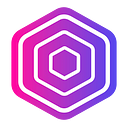What is DAO?
DAO stands for Decentralized Autonomous Organization. As a decentralised organisation, it is led by the community and decisions are made by the community members. Unlike other organisations with top-down hierarchical structures with a central authority, DAOs have a bottom-up approach.
According to deepdao.io, over 180 DAOs (tracked by deepdao.io) with $10B+ in assets under management and nearly 2 million members. These range from DAOs that help manage some of the most prominent protocols in crypto to smaller DAOs organised around investment, social communities, media, and philanthropic pursuits.
How Does a DAO work?
DAO relies on smart contracts that execute automatically when predetermined conditions are met, including managing the treasury or asset pool. Smart contracts govern the treasury itself so that no one can spend or take the money without all the members' votes because DAO is built on code that cannot be altered without the consent of the members. This means that the DAO's code is transparent and visible to the public, making it easier to work with people worldwide.
A DAO can be structured differently. Usually, you agree to the code in place when joining a DAO. To obtain voting power or membership in a DAO, you typically buy governance tokens - cryptocurrencies tied to a project. In some DAOs, the public can only obtain governance tokens in structured funding rounds, and occasionally, demand exceeds the number of tokens available. By holding these tokens, members have a voice and power to direct the project's future. Systems and tools also enable the DAO to work effectively and efficiently with minimal centralised control.
For example, Akropolis issues AKRO, a governance token that grants holders the right to raise proposals and participate in decisions that affect Akropolis. This protocol-level governance is tied to managing the DeFi products built by Akropolis.
All proposals are put up for discussion on the governance forum and in Discord over a given period ( E.g. 7 days), providing all DAO participants with the ability to understand and consider all the pros and cons before voting. The team or community members can then post it on Snapshot for official voting. As it is off-chain voting, it does not require any gas fees. Lastly, the voting exercise ends, and if the proposal reaches a 10% quorum, the team will add it to the project's development pipeline.
The Potential Benefits of DAOs
DAOs have the potential to improve the style of corporate organisation that has not meaningfully changed in hundreds of years despite challenges. The unique structure of DAOs is designed to allow individuals to participate in the future of a business instead of focusing only on the desires of a few large shareholders. It offers a more socially-conscious system, where communities worldwide can connect quickly and build a prospering vision with great transparency. It also eliminates the need for a human to do simple tasks or manipulate investor funds by placing decision-making power into the hands of an automated system and a crowdsourced process.
With an internet connection and governance tokens, anyone can build the future of Web3 in the virtual world. Be it shaping the future of domains like with ENS or even creating a famous play to earn cryptocurrency, participating in a DAO gives you a sense of ownership, further driving innovation with collective intelligence from the public.
The Future of DAO
A business can benefit from a model with DAO-like ambitions. They support the weaknesses of traditional centralised companies and blockchain projects, with the former subject to central points of weakness, middlemen, and unaligned stakeholder interests. The focus on the potential benefits of transparency and decentralised cooperation in project development is critical to maintaining a certain level of independence and neutrality and prioritising the community's interests.
A report by KuCoin Labs published in February notes that DeFi players may opt for DAO governance as regulatory risks are closing in. The report mentioned that DAOs could be recognised as legal entities, and community interest may be prioritised.
As DeFi and NFT communities grow rapidly in size, how to govern decentralised protocols takes on added importance. Getting everyone to promptly vote on proposals finding ways to determine who to trust, collaborate with, and reward can be challenging. With different time zones and investor priorities, keeping DAO participants up to date and engaged can be also be challenging. In a fast-paced Web3 environment, speed is critical for long-term success. The future of DAO is still in development, and materialisation will go in unexpected and fascinating directions. Although, sometimes having leadership make a decision quickly may be the best path forward. What do you think?
About Akropolis
Akropolis provides decentralised finance products that give users access to efficient and sustainable passive yield generation on multiple chains. As part of the Yearn ecosystem, Akropolis offers a range of optimised vaults, focusing on innovative products and strategies that don’t predominantly rely on inflationary emissions as the primary yield source and generate returns regardless of the market conditions.
